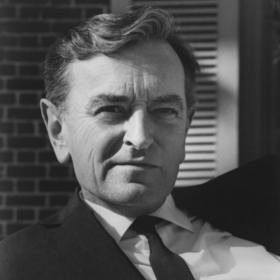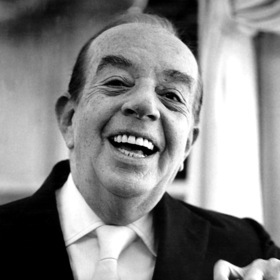Aristotle’s key points of dramatic storytelling
- பிப்ரவரி 11, 2023

Aristotle asserts that all stories have a narrative structure (a beginning, a middle and an end). This means we have to carefully order our stories so they have a natural progression with high points and low points that lead to a complete, cohesive narrative.
He also states that stories should imitate life – they should show recognisable aspects of human existence that the audience can relate to. However, he also says that stories are not exact copies of reality, but rather representations of reality. So when the audience sees a film or TV programme, they get a version of life that they recognise, but in a palatable form.
Aristotle says that all stories need characters to bring them to life, and that characters have an arc: they ascend or descend on a scale of ‘goodness’ or ‘badness’. Metamorphosis (or change), then, is essential to a good dramatic story.
Aristotle talks about the importance of ‘purgation’ or catharsis. This is a major moment when various psychological dynamics come to a head, leading to a sort of ‘purification’ of an individual’s psyche, the release of some long-held personal problem, or at least a purer self-understanding. The writer is key in delivering this: ‘imitation of life’ requires distance so the writer can observe it; ‘showing catharsis’ requires identification from the writer so you can authentically present it back to the audience. In other words, you the writer need to be able to observe life, human experience, the world, and understand (or at least think about) what it feels like, so you can put it into your story and show it to the audience in a way that they will find believable.
Aristotle stresses the importance of linking ‘personal agents’ (characters) to actions – so the internal world of people is as important as the external world of things happening. We cannot create a story without grounding it in characters, and we cannot understand our characters unless we immerse ourselves in the world of their thoughts. ‘Thought’ in this context is not a mental activity, but an articulation of moral purpose and character, a reflection of the story’s core ideas and issues. And it is this element of the inner world of characters that will give your story meaning. For example, E.T. the Extra-Terrestrial (1982) is, on the surface, about a little boy trying to help a stranded alien to get back home. Underneath this, however, is a powerfully emotive story of a lonely boy who finds a friend, only to discover that when you love someone you have to do what’s best for them, not what’s best for you. Which is why audiences always cry at the end of E.T. when Elliot has to say goodbye to his only friend.
Aristotle says that a story doesn’t just need order (beginning, middle and end) but also a logical believability. He talks about the balance between Surprise and Cause-and-Effect. Surprise is some sort of reversal or twist which the audience does not expect. Cause-and- Effect is any new story event which, upon reflection by the audience, will seem in retrospect to be inevitable within the context of the dynamics you have set into motion in the narrative. Cause-and-Effect also gives your story a seamless sense of forward movement.
Aristotle also discusses the importance of ‘reversals’. These are points in the story when a character meets an obstacle that knocks them off course and challenges their desire or intention. A good way of thinking about these in your story is to think of them as problems or obstacles. A strong story is made up of a series of these problems that a character must deal with before getting to the end.
The telling of a story depends on an individual writer’s personal creativity (this is what makes each story unique and original). Yes, there are patterns and structures and conventional wisdom, but they should not restrict you. Express your own creativity, and your own voice within your narrative.
Overall, what Aristotle identified in his study of dramatic story was that they all have, at their heart, a principle of ‘change through adversity’. The story is a series of dramatic problems and situations that have an effect on the central character and their world. When the audience sees this, they empathise with the characters and, thus, connect with your story on an intellectual and an emotional level.
When trying to develop the kernel of a film story idea, you should look particularly at the combination of story event and character. You are looking for the right mix of both to create a story that has lots of potential, twists and turns, surprises and something for the audience to root for. This kind of storytelling (‘what will happen next?’, ‘how will they get out of that one?’, ‘don’t go in there!’) generates the key requirement for any story told to an audience: emotion.
The Poetics and screenwriting
Much more than in Aristotle’s time, audience is a huge component in modern screenwriting because everything about making films and television involves money. The key to a great film or television script idea, then, is that it should be both personal to you and potentially commercial. That means it should contain both a strong physical conflict (things happening, people falling in love, people clashing, moments of excitement, etc.) and an emotional conflict (that the audience can relate to). The difference between a rubbish film and a good one is ‘heart’. And ‘heart’ is an emotional conflict the audience can relate to.
The place to find that is in the central character of your story idea. Construct your idea so that the central character has to face up to personal problems as well as external plot problems – perhaps something in their past that they don’t want to relive; perhaps some deep fear; or maybe some mistake they made and never gotten over.
At the start of the Alfred Hitchcock film Vertigo (1958), Scottie Ferguson’s fear of heights causes the death of his policeman partner. The fear of heights is tied to his partner’s death and the character’s subsequent guilt. From that fear grows the plot, because the plot will force Scottie to face his fear.
In his book Breaking Through, Selling Out, Dropping Dead, William Bayer explains why some films are hits and others flop: ‘A film becomes a hit when the fantasy it represents coincides with the needs of the audience’ (Bayer, 2004). So, a successful screen story explores a subconscious fear or desire currently held by the audience. It’s a zeitgeist thing.
This explains why a seemingly mindless action film like Taken (2008) turned out to be such a smash hit with audiences. When the world economy crashed in the early 2000s, lives were ruined. Add to that the tensions in places like the Middle East and seemingly endless wars around the world, many people felt weak and powerless. Taken is a fantasy about the importance of family. The central character is underestimated by the bad guys, which taps into the audience’s desire to be secretly powerful. It was the right film at the right time; a story that tapped into the audience’s zeitgeist.







“It is the golden age of a screenwriter. In this era, if a script writer, has the content, potential and patience to sit and write, he will be rewarded”